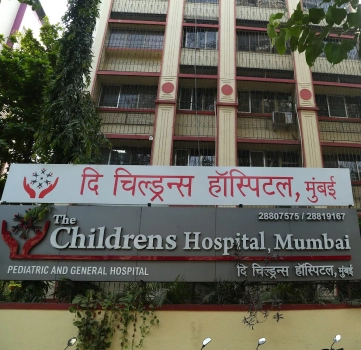Best Pediatric Surgery Hospital in Mumbai,India
CENTER FOR PEDIATRIC SURGERY (CHILDREN & NEW-BORN SURGERY)
CENTER FOR PEDIATRIC UROLOGY (GENITO-URINARY SURGERY)
CENTER FOR GASTRO-INTESTINAL & HEPATO-BILIARY SURGERY
“Our mission is to provide and promote excellence in surgical care for children, being one of the top pediatricians in Mumbai”.
“Child is not a small Adult” and, therefore, require expertise that can cater to their needs. Babies suffer from different problems, their physiology is different, they handle stress differently, and the principles of treatment are entirely different from adults.
Pediatric & Neonatal surgery is the field of medicine that deals with the surgical care of new-born babies, infants, and children to the age of 18 years. This branch is highly specialized not only because one has to handle very delicate and miniature tissues, but also it requires a great deal of patience, compassion and understanding to handle the little babies and their very anxious parents.
Why choose us as your child's pediatricians?
The Children's Hospital Mumbai focuses on special surgical procedures while treating the children with extreme compassion and care. Our board-certified pediatricians treat infants, children, and adolescents, and also help to counsel parents expecting a baby who may have been diagnosed before birth with a surgical problem. The pediatric surgeons are experienced in caring for the wide variety of problems children may have, ranging from hernias or appendicitis to cancer or serious congenital anomalies.
Our Services:
The division of board-certified pediatricians performs state-of-the-art minimally invasive and routine operations for the full range of general, abdominal, thoracic, head and neck, pelvic, and soft tissue conditions including specialist expertise in:
- General Pediatric Surgery (Common Operations – Hernia, Hydrocele, UDT)
- Neonatal Surgery (Surgery on the New-born- usually for congenital anomalies)
- Pediatric Urology (Kidney, Ureter, Bladder Anomalies & Hypospadias Surgery)
- Pediatric Gastrointestinal Surgery (GIT, Liver and Bile Ducts)
- Pediatric Colorectal Surgery (Hirschsprung's & Imperforate Anus)
- Pediatric Thoracic Surgery (Lung operations & Foreign bodies in Airways)
- Plastic Surgery (Cleft lip and palate surgery)
- Oncology (Childhood Cancers – Wilm’s, Neuroblastoma, Hepatoblastoma)
- Corrective surgery for congenital deformities
- Antenatal Counselling
Affiliated Surgical Services:
- Pediatric Orthopedic Surgery
- Plastic, Reconstructive & Aesthetic Surgery
- Otolaryngology (ENT) – Head & Neck Surgery
- Ophthalmology (Eye Surgery)
- Neurosurgery
The division undertakes all kinds of operations specifically considering children. These include:
General Pediatric Surgery – (Common Operations) - Conditions like a hernia, hydrocele, and undescended testis are very common in children. These conditions are best managed by an operation that is best done by our board-certified pediatrician. The operations are done as day cases and the child is sent home the same day.
Neonatal Surgery – These are operations done on new-born babies almost immediately after birth, for birth defects that if not corrected immediately will result in death. These operations are done for abnormalities like a congenital diaphragmatic hernia, esophageal atresia with tracheo-esophageal fistula, anorectal malformations (imperforate anus), abdominal wall defects, spina bifida and hydrocephalus among others.
Pediatric Urology – Abnormalities of the kidneys and bladder account for 40% of surgical cases in children. We perform operations on the kidneys, ureters, bladder, and urethra in children including in new-born babies. These operations are done for conditions like hydronephrosis, vesicoureteral reflux, and posterior urethral valves. Some of these operations are done endoscopically using a cystoscope.
Pediatric Gastrointestinal Surgery – Complicated operations on the gastrointestinal system, liver and bile ducts are routinely undertaken. These are done for conditions like an imperforate anus, Hirschsprung's dosease, biliary atresia, choledochal cyst among others Pediatric Thoracic Surgery - Operations on the lungs are commonly done, again mainly for abnormalities present since birth. We also perform bronchoscopies in children to remove inhaled foreign bodies from the air passages.
Pediatric Thoracic Surgery – Operations on the lungs are commonly done, again mainly for abnormalities present since birth. We also perform bronchoscopies in children to remove inhaled foreign bodies from the air passages.
Pediatric Plastic Surgery – Plastic reconstruction in childhood deformities like cleft lip, cleft palate and hypospadias repair are routinely undertaken with excellent results.
Oncology – (Pediatric Cancers) - Surgical treatment of childhood cancers like Wilms' tumor (tumor of the kidney), neuroblastoma and rhabdomyosarcoma.
Minimally invasive surgery – (Key-Hole Surgery) – There has been a changing trend in the faculty of Pediatric surgery with Minimally Invasive Surgery playing a bigger role in the management of surgery of children. Instrumentation is improving and the skills need to be acquired and augmented to enable safe surgery through a laparoscope in smaller with smaller babies, even neonates.
Antenatal Counselling – Help to counsel parents expecting a baby who may have been diagnosed before birth with a surgical problem.
Our Specialities
- Congenital Cystic Adenomatoid - Malformation
- Congenital Lobar Emphysema (CLE)
- Lung sequestration
- Oesophageal Atresia and Tracheo-oesophageal Fistula
- Congenital Diaphragmatic Hernia
- Eventration of Diaphragm
- Duplication of the gut
- Pyloric Stenosis
- Duodenal Atresia / Stenosis
- Intestinal Atresias
- Duplications
- Malrotation
- Meconium Ileus
- Necrotizing Enterocolitis
- Biliary Atresia
- Choledochal cyst
- Anorectal Malformations
- Hirschsprung’s disease
- Exomphalos
- Gastroschisis
- Posterior Urethral Valves
- Prune Belly Syndrome
- Cloacal Exstrophy
- Epispadias
- Ambiguous Genitalia and Intersex conditions
- Sacrococcygeal Teratoma
- Pelvi-ureteric Junction Obstruction
- Duplex Kidneys
- Vesico-ureteric Reflux
- Vesico-ureteric Junction Obstruction
- Posterior urethral valves
- Neurogenic Bladder
- Nesidioblastosis
Frequently Asked Questions (FAQs)
How often should my child see the pediatrician?
Consider your child visit with a pediatrician regularly, because child visits normally are good for parents as they can get to know more about their child's development, safety, nutrition, and behavioral pattern. The Pediatrician conducts child care exams during the regular interval, beginning from infancy. These checkups and routine visits provide early detection of any problems that their child might be facing for example - Lung sequestration, Gastroschisis, Hirschsprung’s disease, and so on. You can also ask our pediatrician to perform complete hralth supervision including learning, behaviour and physical assessment.
What is an best way to schedule an appointment with your pediatricians?
You can schedule an appointment by calling us on our 24/7 helpline number or you can also visit our contact us section on the website and book your child appointment.
Why does my child need to receive vaccination?
Immunizations is the series of vaccination given to your child to prevent them from potentiall fatal childhood diseases including epidemics and infections with its serious consequences.
What are routine well-care child visits?
The well child visits includes an overall childs specific development, behaviour, nutrition, safety and overall well-being concern. The recommended schedule for the routine well care visit are:
- 3 to 5 Days
- 1 month
- 2 months
- 4 months
- 6 months
- 9 months
- 12 months
- 15 months
- 18 months
- 24 months
- 30 months
- 3 years
- 4 years
- And once every year thereafter for an annual health supervision visit that includes a physical exam as well as a developmental, behavioral, and learning assessment.


















 Get Expert Advice
Get Expert Advice  Request an Appointment
Request an Appointment 